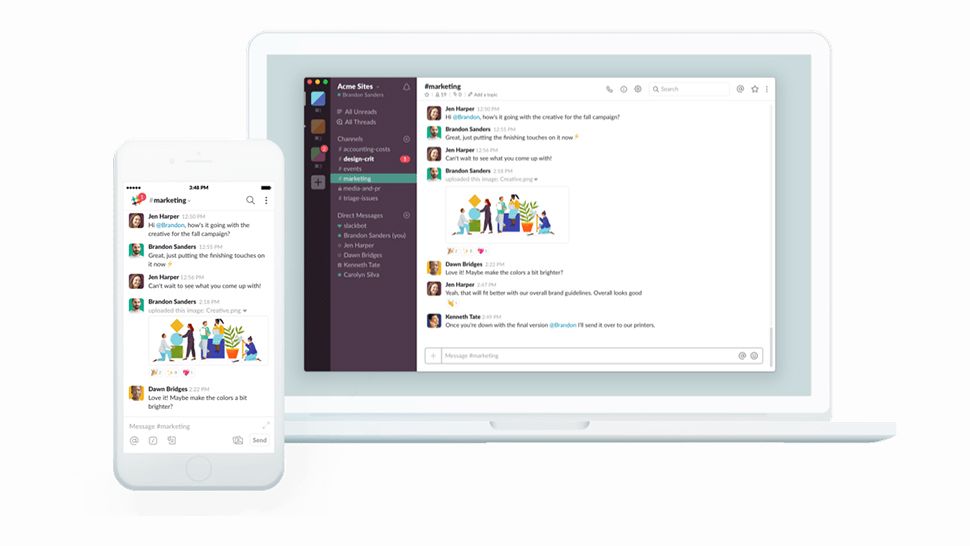
Slack has grown rapidly over the past few years to become one of the world’s most popular chat and collaboration tools.
The company, which incredibly is still only four years old, now numbers over eight million daily active users, with the UK ranking as one of its top five markets worldwide, and the likes of Marks & Spencer, Sky, ITV and Ocado all signed up as customers.
But far from resting on its laurels, Slack is aiming to keep growing and expanding its reach across the world to allow businesses to raise their collaboration even higher.
Crafted
“We have only one mission, we want to make people’s working lives simpler, more pleasant, and more productive,” Rav Dhaliwal, Slack’s head of customer success for EMEA tells TechRadar Pro at a recent meeting at the company’s UK office in the heart of Belgravia.
“Slack is acting as the fabric to bring your organisation together,” he says.
The company is enjoying huge growth, having added two million users since the turn of the year, and now counts over a thousands employees across eight global offices.
But this success comes with added pressure, as Slack now has to face the question of how it stays useful and relevant in what has become a hugely competitive marketplace.
“On the surface, it may look like we have a very similar proposition…but if you scratch the surface, what you see is that we have a huge amount of differentiation,” Dhaliwal says, highlighting how Slack is looking to ensure its quality of service going forward.
“Craftsmanship is one of our core values,” he says, noting that within Slack, all updates are released in a timely and innovative manner, which he says is, “the antithesis to move fast and break things.”
Slack has expanded its product offering within its platform recently, with Dhaliwal singling out the addition of private shared channels as a particularly strong selling point for customers.
The opportunity to securely and quickly chat to contacts outside of your organisation has proved incredibly useful for customers operating with global contacts, with the productivity benefits helping Slack be recognised as a true game-changer.
Dhaliwal notes that Slack’s philosophy of being an open platform is what makes it so appealing, particularly with larger organisations.
The company’s new Enterprise Grid feature is also proving attractive to big businesses, with over 150 large organisations now utilising the platform, which is designed for workforces of around 500,000 to a million employees.
“An organisation is not a monolithic thing, it’s a collection of teams – so really what you want to do is to make it a team of teams,” says Dhaliwal.
“Huge momentum”
For a company that has helped foster communication and collaboration across the globe, it’s good to see that Slack also has a strong belief in its local work.
The company’s UK office is booming, with new staff joining on a regular basis, and more and more local customers signing up all the time.
Dhaliwal notes that 63 percent of the FTSE100 use Slack, and 45 percent of daily usage in the UK is paid for, making this one of the company’s strongest markets worldwide with “huge momentum”.
Even the threat of Brexit is not perceived as something to affect Slack’s future strategy, which is set to evolve into utilising more advertising to build on the company’s heritage of expanding via viral means.
The UK is set to play a key part in Slack’s growth though, maintaining its status as a hub for digital success and innovation with one of the most vibrant companies in the technology space today.
As Dhaliwal says, “businesses are transforming, and they’re using Slack as the vehicle to help them.”
Be the first to comment